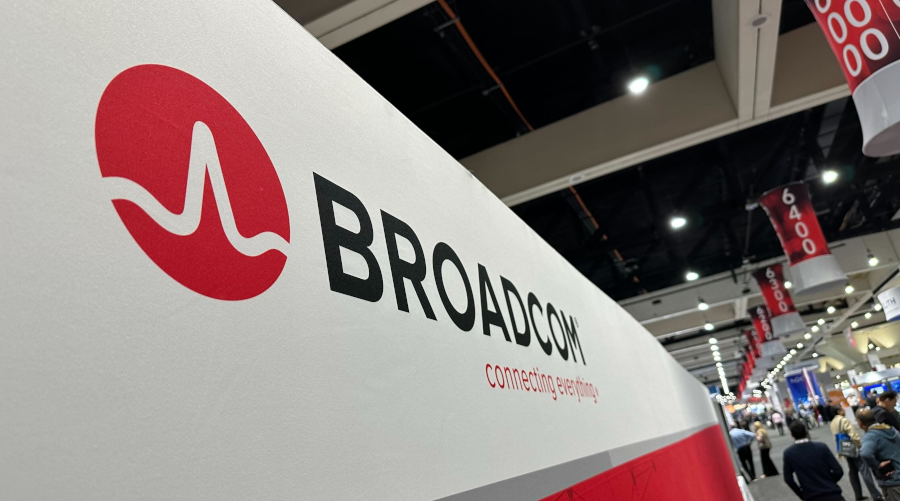 CLOUD
CLOUD
 CLOUD
CLOUD
 CLOUD
CLOUD
Updated with announced deal:
Chipmaker Broadcom Inc. is selling VMware Inc.’s End User Compute business to the private equity firm KKR & Co. Inc. in a deal worth $4 billion.
The deal, announced this morning after reports Saturday on its likelihood, is the latest in a series of moves by Broadcom Chief Executive Hock Tan to streamline its business operations after acquiring VMware for $69 billion in November.
Reuters cited people familiar with the matter as saying that KKR won out in an auction involving a number of other private equity firms, including EQT Corp. VMware’s EUC business sells software that enables people to access desktops and software applications remotely via the cloud.
The acquisition could prove a nice fit for KKR, since it already owns a company called Alludo, which sells the virtualization software Parallels. It’s likely those two businesses could complement each other, with Alludo saying its mission is to reimagine “where, when and how people work.” The EUC Division will be a standalone company run by its existing management team led by Shankar Iyer.
Broadcom has wasted little time in streamlining VMware since closing on its blockbuster acquisition of the virtualization software firm in November, as it strives to make the company more profitable. The company said that month it’s aiming to double VMware’s earnings before interest, taxes, depreciation and amortization to $8.5 billion over the next three years.
In line with that plan, Broadcom revealed immediately after closing on the acquisition it will be restructuring the company into four divisions that are each responsible for a different subset of its products. Then in December, it revealed that more than 1,800 employees would be laid off as part of a plan to boost the company’s profitability.
Broadcom has also said it will relocate its own headquarters from its existing campus in San Jose to VMware’s 1.6 million-square-foot head office in Palo Alto. Plans are reportedly afoot for Broadcom to divest VMware’s end-user computing unit, and there are reports that the company is also looking to sell off the Carbon Black cybersecurity business.
Also in December, Broadcom announced a plan to strong-arm VMware’s perpetual license-based customers into signing up for subscriptions. New customers are no longer able to purchase a perpetual license to access VMware’s flagship virtualization software, and existing customers will be barred from acquiring support and software updates.
The chipmaker has been working hard and to monetize its substantial investment in VMware, and offloading the virtualization company’s smaller business units has been a key part of its strategy, said Charles King of Pund-IT Inc. “VMware’s EUC business has never been a massive part of VMware’s offerings,” the analyst said. According to King, the main advantage of offering an EUC solution to customers was that it prevented them from turning to potential competitors, such as Citrix Systems Inc.
KKR is an active player in the technology industry, and has been involved in some bumper acquisitions over the last few years. In 2018, for example, it acquired the business software company BMC Software Inc. for around $8.5 billion, before merging it with a company called Compuware Corp., which was snapped up in 2020 for around $2 billion.
In 2021, KKR bought out the information technology services firm Ensono LLC for a deal worth around $1.7 billion. Then, in 2022, it spent a reported $4 billion to acquire the cybersecurity firm Barracuda Networks Inc. KKR also acquired Corel Corp., a provider of productivity and business software, in a 2019 deal that was said to be worth more than $1 billion.
King said VMware’s EUC business seems to be a good fit for KKR’s investment strategy. “KKR has been actively acquiring veteran and legacy businesses that, while not as dynamic as Silicon Valley darlings, still deliver measurable, consistent profits that are higher and contain less risk than other investments,” he explained.
Holger Mueller of Constellation Research Inc. said the deal suits both KKR and Broadcom. KKR will benefit because there is strong demand for a fundamental change in the future of work, he said, with business workers seeking to access stateful work applications in software, similar to how they now access desktops remotely. Meanwhile, Broadcom can almost certainly use the cash to settle some of the debts it acquired to buy VMware in the first place, Mueller said.
“Most importantly for VMware’s traditional virtualization customers is that this deal will not effect their investments,” the analyst said. “However, VMware EUC customers will need to ensure that the new owner makes good on its original commitments to pricing and licensing.”
Reuters reported that Deutsche Bank, Evercore and Jeffries are advising KKR on the latest transaction, while Citigroup is said to be advising Broadcom. UBS Group, Jeffries and KKR’s capital market business unit are said to be providing the necessary debt financing for the deal.
Support our mission to keep content open and free by engaging with theCUBE community. Join theCUBE’s Alumni Trust Network, where technology leaders connect, share intelligence and create opportunities.
Founded by tech visionaries John Furrier and Dave Vellante, SiliconANGLE Media has built a dynamic ecosystem of industry-leading digital media brands that reach 15+ million elite tech professionals. Our new proprietary theCUBE AI Video Cloud is breaking ground in audience interaction, leveraging theCUBEai.com neural network to help technology companies make data-driven decisions and stay at the forefront of industry conversations.